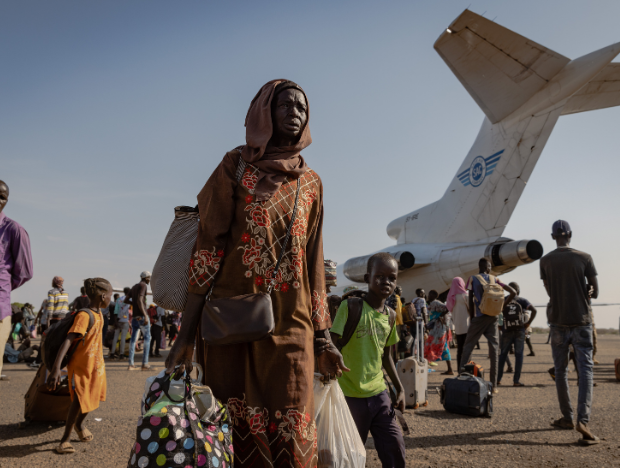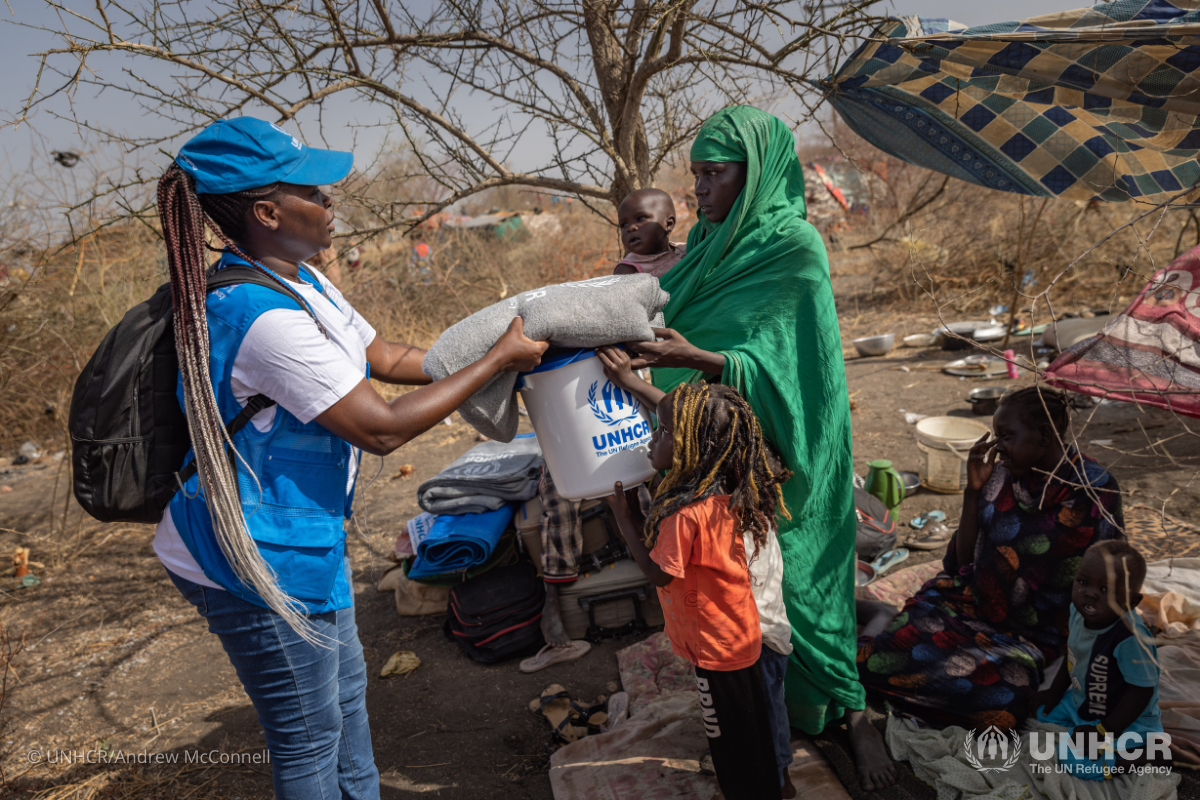Take our quiz and learn how USA for UNHCR donors help provide clean water to refugees
Water is life — and clean water and effective sanitation are essential to people's life, health and dignity.
Without access, people die needlessly from heat-related causes, thirst and illness … deadly diseases can spread like wildfire … and women and children risk facing many dangers as they make long journeys to fetch water.
USA for UNHCR donors are crucial to helping provide safe, clean water to the women, children and men fleeing violence and persecution all over the world.
For refugees living in tents and makeshift shelters with no relief from the sweltering summer sun, there’s an urgent need for safe water right now. As temperatures rise, the current areas of intense concern are Syria, South Sudan, Central African Republic, Iraq, Yemen and Europe.
Test your knowledge of water — and learn more about how UNHCR keeps clean water flowing in partnership with generous donors. Scroll down to the bottom of this page to find the answers.
1. Bad or standing water encourages which of these diseases?
A. Cholera
B. Typhoid
C. Schistosomiasis
D. All of the above
At Mole, families wash with clean water before every meal to prevent the outbreak of deadly diseases.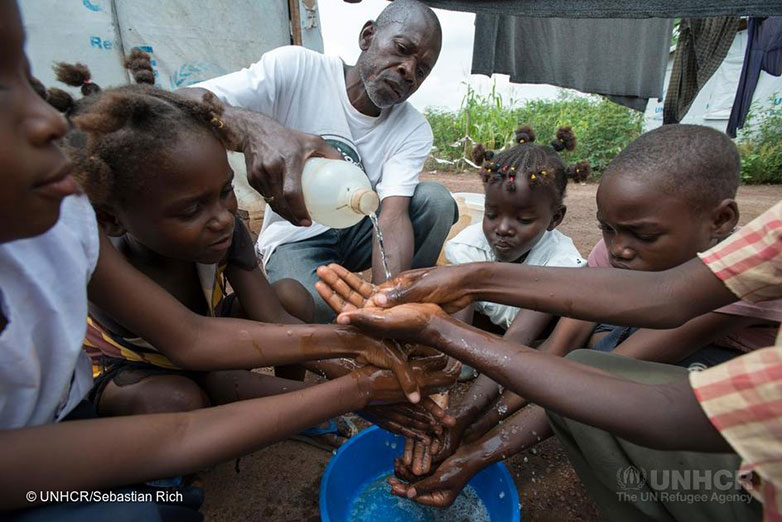
2. How much of the human body is water
A. 20%
B. 40%
C. 58%
D. Up to 73%
A family collecting clean water at a bore hole in at a settlement of displaced people in Mingkaman, South Sudan, where tens of thousands of people live.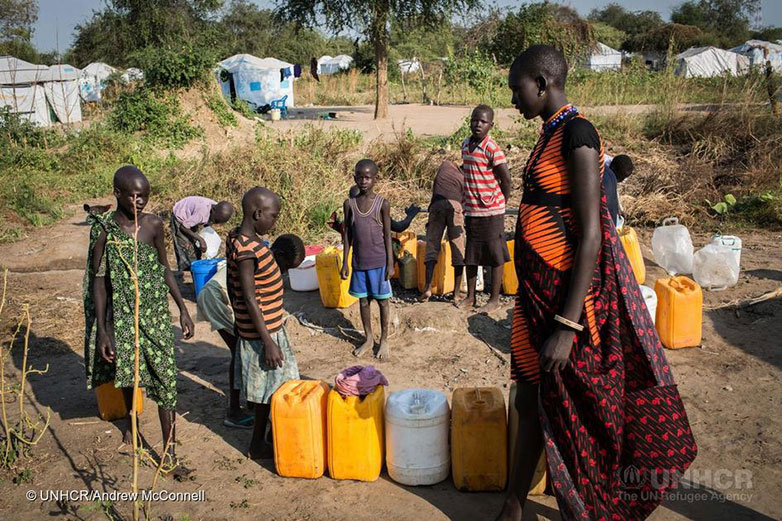
3. How long can a person survive without water?
A. Two weeks
B. One week
C. Three days
D. Depends on the conditions
Refugees who fled to Europe in 2015 often went for days without enough water. UNHCR staff distributes bottles of clean water at a train station in Hungary.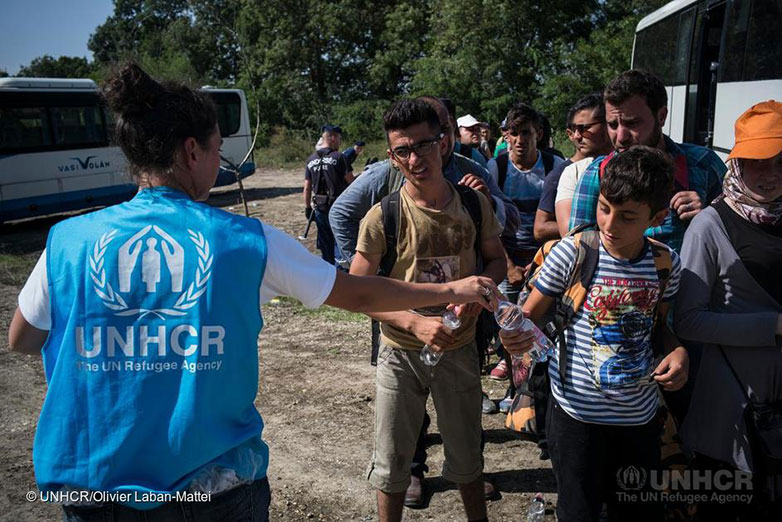
Here’s how you can help …
By becoming a USA for UNHCR monthly donor, you can provide food, shelter, medical care and education to vulnerable refugees every day of the year in every corner of the world. Start making a lifesaving difference for refugees with monthly gifts today.
Answers:
1.) D: All of the diseases mentioned, and many more, can be spread by contaminated water.
2.) D: While the percentage of water making up our bodies decreases as we grow to adulthood, babies’ bodies consist of approximately 73% water.
3.) D: The length of time a person can survive without water depends on the conditions. Hot, dry weather and heavy exertion both increase the need for water and can shorten survival time. Also, pregnant and lactating women, the elderly and babies are particularly affected by water deprivation.
